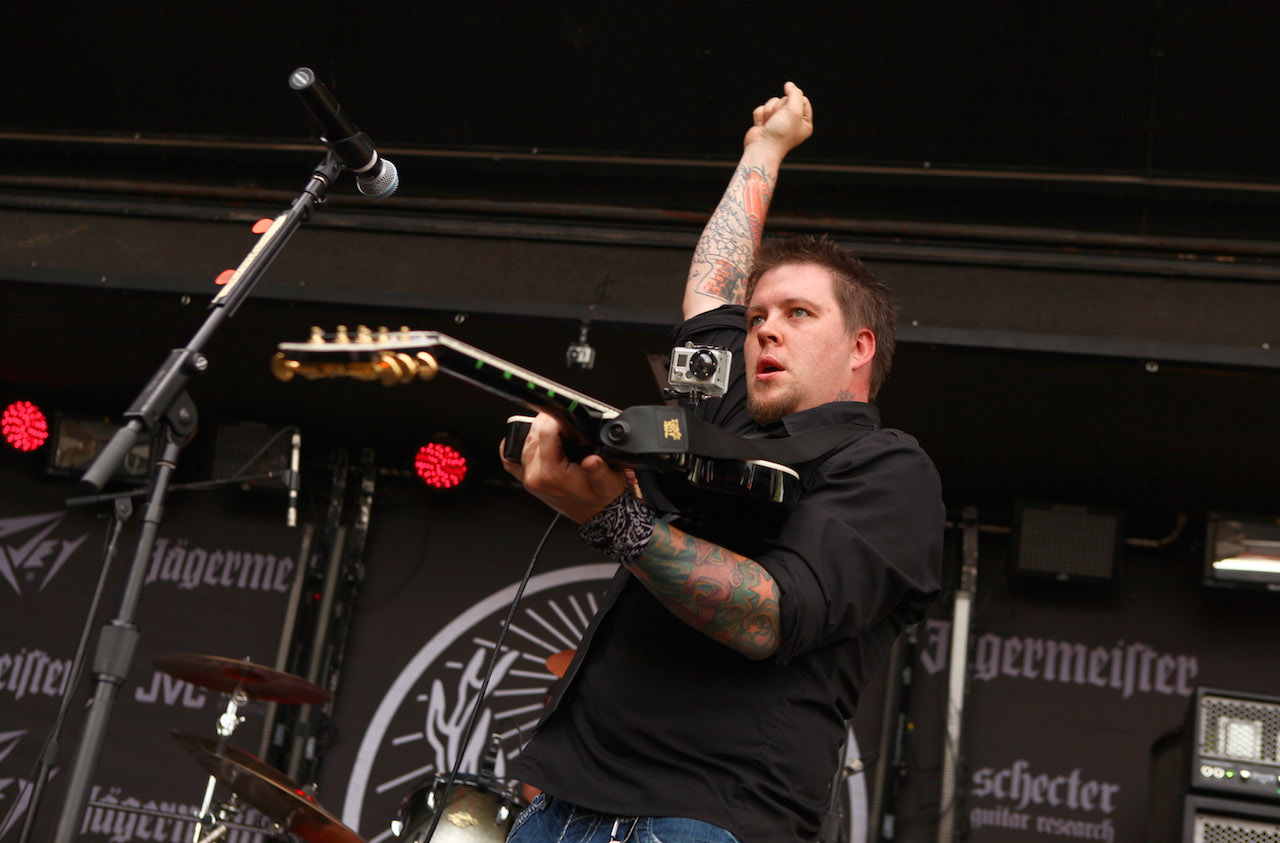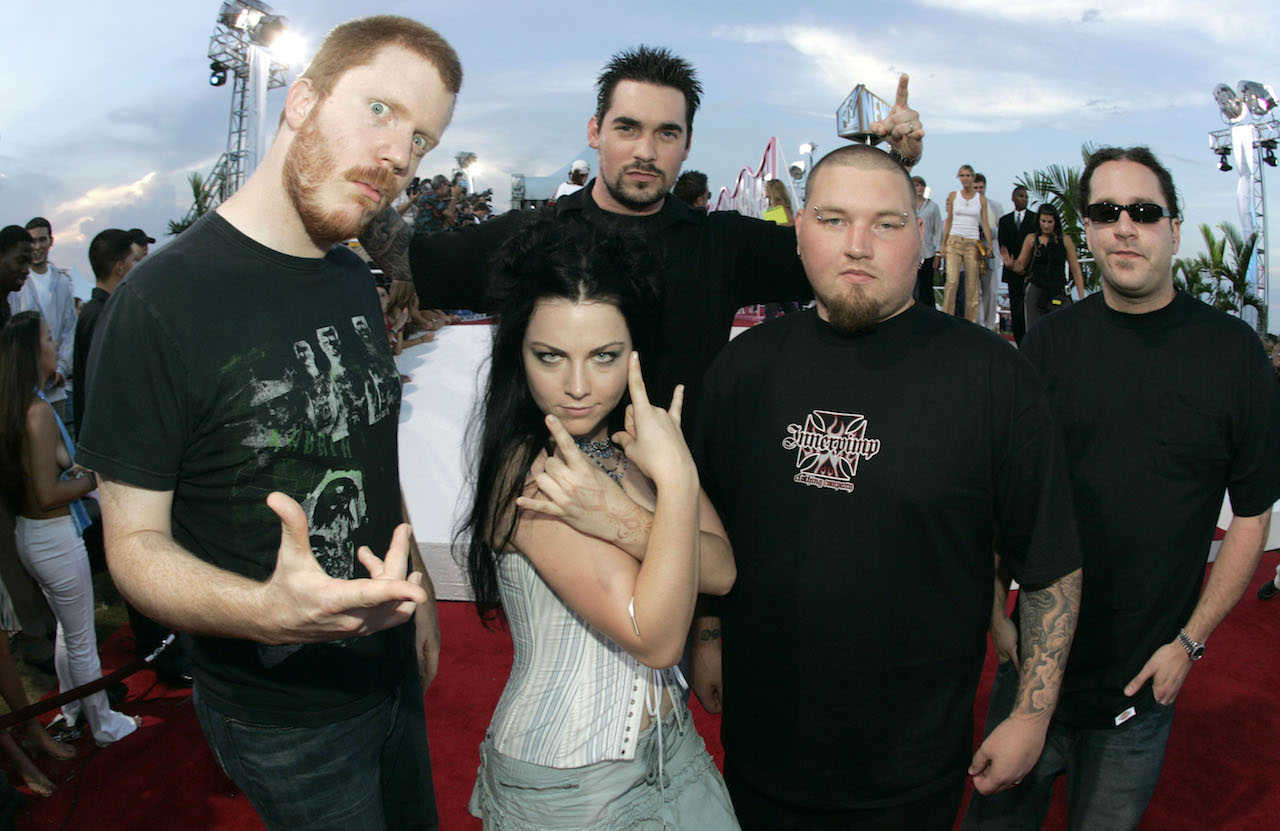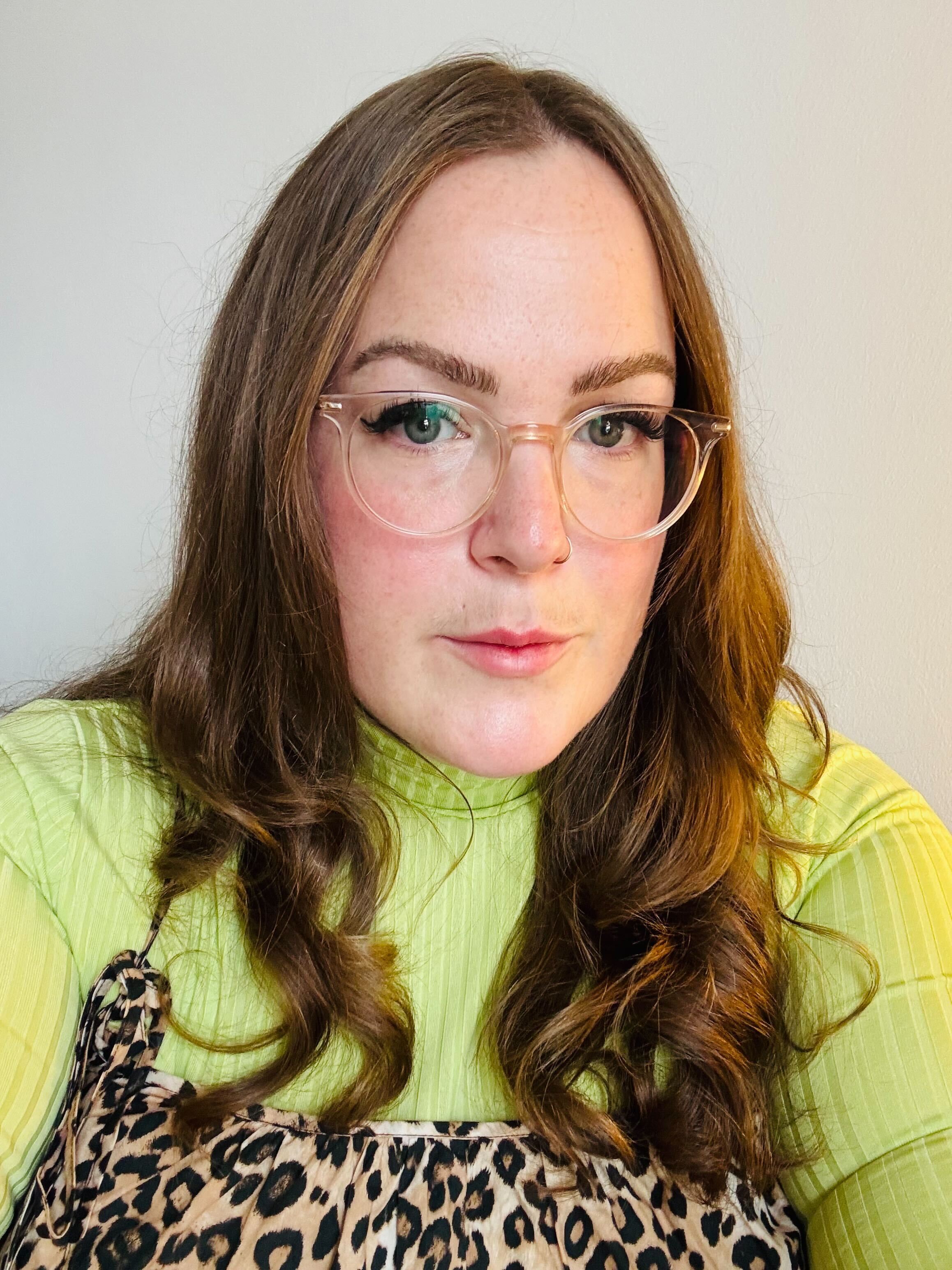Evanescence's Amy Lee: how we made Bring Me To Life
Evanescence's chief crooner remembers how they created their breakthrough hit

On April 22, 2003, Evanescence’s debut single Bring Me To Life introduced the band to the world. The song, which featured on the Daredevil soundtrack, swiftly stormed charts across the globe, bagging the No.1 spot in five countries. It was inspired by an encounter in a restaurant, a moment that would change singer and band-leader Amy Lee’s life in more ways than one.
“This song was actually written about the guy who is now my husband, before we were married,” Lee says. “We didn’t know each other very well, but things were really hard [for me] in a lot of ways. I’d been in a really bad abusive relationship, which had been very difficult for a long time. Part of that, for me anyway – and I think it’s true of a lot of people that are in abusive relationships – part of that was about hiding it; covering for it all the time, pretending that things were good, and that I was okay, and that it didn’t exist.
“I thought that I was doing a pretty good job of pretending. But Josh, this guy that I didn’t know really well but I liked a lot, we went into a restaurant while my band members were parking the car. When we sat down, he looked at me right in the eyes, and said ‘Are you happy?‘”
It was a moment that had a profound effect on Lee.
“It just caught me really off guard. It made me short-circuit, and look down and make a bunch of excuses really quick; but the moment stuck with me in my head, and it really affected me. I felt very exposed, but it felt good at the same time – like he could see me. ‘How can you see into my eyes like open doors?’ But at the same time, I had so much pain that I was trying to hide, and it made me face it.”
- The Top 10 Essential Goth Albums
- How Evanescence Came Back From The Brink
- Thinking Out Loud: Evanescence's Amy Lee
- The Top 10 Essential Nu Metal Albums
It was another year before the song was released, and in that time the band struggled to adjust to the challenges of a demanding music industry.
“We went through a lot,” says Lee. “The beginning moments of this band – making Fallen, releasing Fallen – were such a whirlwind of high highs and low lows for me. There was definitely some difficult stuff going on in the band, just trying to work together – it was hard.
Sign up below to get the latest from Metal Hammer, plus exclusive special offers, direct to your inbox!
“At the same time, all these wonderful things were happening, like the fact that we were getting to record in a real studio, and have real strings by a beautiful string arranger, and then the fact that they’re putting it out and it’s going to be in a huge movie. And then we’re nominated for a Grammy! There was a lot of happiness there. But, I was 21, and I don’t think it matters how old you are – there’s no way to be prepared for it. There were a lot of difficulties in adjusting my life to that big change.”
As label involvement increased, Lee quickly learned that she would have to relinquish complete creative control. This proved difficult for the band, not least when the decision was made to hire a rapper, 12 Stones’ Paul McCoy, to perform guest vocals with the singer.
“That was not our original plan,” Lee says. “It was something that we had to do, it was a concession we had to make for the label. But at least when we did it, I wrote the part, we took a lot of care in creating it the way that we wanted it to be, and I worked with Paul to get it the way that we still felt it fit our band.”
McCoy’s involvement was at least partly responsible for them landing the nu metal tag championed by their early 2000s counterparts – a label the band have never felt comfortable with.
“I felt from the beginning that Evanescence is something unique,” says Lee. “It’s a combination of a lot of different things, but it definitely doesn’t fit in one box. And that’s one of the reasons we didn’t want a rapper in the song in the first place, because it puts it in a box. Since that was our first song, that was the main reason for the fear. Because branching out, and trying different things, and playing around in the world that is more metal, playing around in the world that is more electronica, playing around a little bit in a classical way, those are all things that this band does. But with the first song you have to do your best to sum up who you are; you don’t give people a false idea of what they’re buying into. That was the thing we had to be careful about.”

Lee’s fears were happily proven to be unfounded, though.
“Now, it’s all okay because we survived it,” she says with a laugh. “After the first song came out, we had success with our second single, Going Under. Then we had success again with My Immortal. So it definitely felt like, ‘Okay, phew! It all worked out, it’s okay that we had the rapper in the song.‘”
Despite the song’s later success, Lee initially struggled to get people to believe in the track before it was released.
“You really can’t know at all [if a song will be a hit]; there’s no telling. People had all sorts of different opinions about what would happen to us when we were starting out – there was plenty of people who thought it was good but it wasn’t going to go anywhere mainstream.”
So, if the song was connecting with people, why were they reluctant to support it?
“Because I was a female, honestly,” admits Lee. “Heading up a band that was hard rock; at the time, it just didn’t exist.”

A lack of support wasn’t enough to shake Lee’s belief that they were onto something special.
“I’ve always seen the things about us that were different as positives – as reasons that made it unique and special and good,” says Lee. “All my favourite artists don’t sound like anything else around them that came out at the same time. It’s not a copy, it’s something truly pure. And I felt like those things that made us unique were the things about us that could make us great. But that, in the beginning, was exactly the opposite idea of the suits – they want something safe, they want something that’s been done before. So it was definitely a great feeling when we could prove them wrong and that we had a No.1 hit.”
That belief in their vision is something that would stay with Lee throughout Evanescence’s career.
“Something that I’m very proud of is that I actually have had to fight battles all along the way for this band, with people from every side of it, to preserve what I believe in and to preserve the vision of the band; to not let it become tainted and pulled away and watered down and changed,” she says. “I have been fighting for years! It’s exhausting. But I love it that much, and I’ve made it this long and I’m still standing. I don’t know how many rounds it’s been, but I feel like I’ve actually broken through to a place where I don’t find myself fighting so much now – I’ve earned the respect that I know what I’m doing.”
Of course, with great success comes great responsibility, and Lee admits there’s a certain pressure when it comes to keeping her global fanbase happy: “We have millions of fans around the world and to some degree we connect, and we know each other, and I want to make them happy and I want to make music that they love. But at the same time, sometimes I have to make decisions that are based on what I love about music, because that’s how it all started in the first place. [You] just take a chance, knowing that everybody won’t love it – but that’s part of it. It was worth it. it was worth all the fighting, definitely.”
Briony is the Editor in Chief of Louder and is in charge of sorting out who and what you see covered on the site. She started working with Metal Hammer, Classic Rock and Prog magazines back in 2015 and has been writing about music and entertainment in many guises since 2009. Her favourite-ever interviewee is either Billy Corgan or Kim Deal. She is a big fan of cats, Husker Du and pizza.

